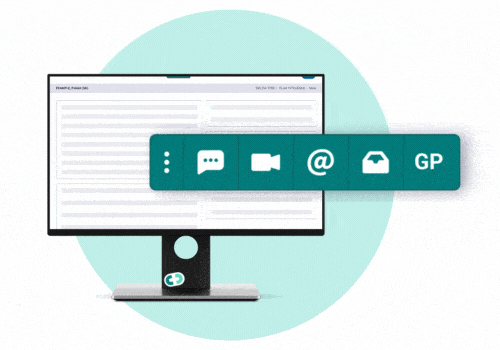User roadmaps part of GPSoC contracts
- 2 December 2013

GP system user groups are developing roadmaps for system development that suppliers must comply with under the new GP Systems of Choice contract.
GPSoC programme director Kemi Adenubi told EHI that the Health and Social Care Information Centre is asking the user groups to create user defined roadmaps for their systems.
The aim is to make sure that the principal suppliers deliver enhancements that their users want in a timely manner.
GPSoC is a framework contract which funds GP IT systems for around 80% of practices in England.
Contracts expired in March this year, but an extension has been agreed until a new contract is in place, which is now expected to be by March 2014.
Adenubi said the complaint from GPs has been that the national agenda places demands on the suppliers and their own requirements get pushed down the development list.
The new contract, which is still being negotiated, will say that suppliers must agree to user-defined roadmaps that can be updated quarterly.
“Once a year we will be checking what has been delivered and what hasn’t and there will be some form of deduction from the payment if they haven’t delivered,” Adenubi explained.
“The user groups have different mechanisms for asking what people want so they need to talk to users and agree how they will provide us with a consulted roadmap.”
There will also need to be a clear way of evaluating if developments have been delivered.
“We think (suppliers) should make profits and be able to expand into other markets, but the licence fee is not money for a static piece of software, it needs to be developed in response to their current users’ needs."
Adenubi added that the mature relationship between user groups and system suppliers means they will be able to come to an agreement about what is acceptable.
“We know there will be some ways of gaming it, but it’s better than not having anything at all, so we have to leave ourselves space to refine it over time.”
The first roadmaps need to be ready by the time the contracts are signed. The HSCIC is negotiating with an initial group of 19 suppliers about getting on the framework, after 90 responded to the initial tender.
Negotiations with a further 36 suppliers to deliver locally funded services that interface with GP systems are due to start in early 2014.
“The main thing is to finish this first set of negotiations and be ready to go, but with 19 suppliers and a bunch of practicalities like this to get through, it’s really down to the nitty gritty,” Adenubi said.
The HSCIC has a GPSoC advisory group which it consults regarding “sticking points” in negotiations, including members of the General Practitioner’s Committee, user group chairs, commissioning support unit and clinical commissioning group representatives.
One of the key requirements of GPSoC version 2 is that principal suppliers must open their interfaces to allow subsidiary systems to interoperate with them.
This opens up the market for third-party suppliers to provide patient transactional services, patient clinician communication and patient record access.
“It’s a key plank that anyone who wants to come on to the framework has to meet the interface requirements” Adenubi explained.
The vision is that there will be a variety of different applications that patients can use to access their records online. Some of these will be provided by the principal suppliers and some by third parties.
Companies will be paid a certain amount for core costs, then paid per patient transaction, driving competition in the market and weeding out under-performers, Adenubi added.
Providers in this round of GPSoC have to have experience of handling data securely and running a service.
A second procurement is expected to run no sooner than 18-months from the initial contract signing, at which point it should be easier for smaller companies to join, Adenubi said.
Read an interview with Kemi Adenubi, EHI’s Healthcare IT Champion of the Year for 2013, in Insight.




